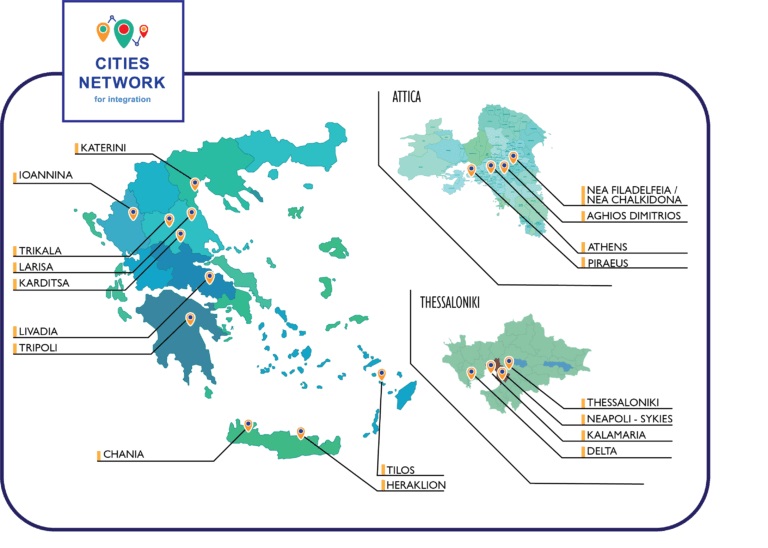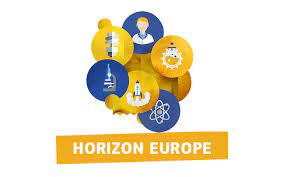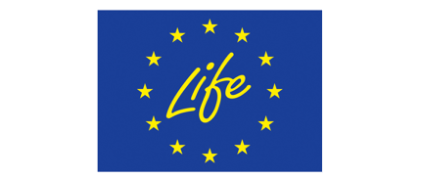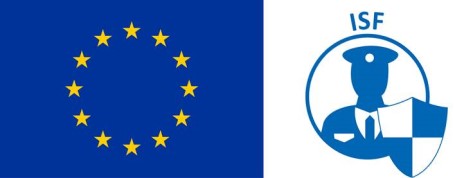Recognizing the benefits of extroversion and networking as well as the prospects for the development of substantial partnerships, the Municipality of Larissa has created within the Department of Operational Planning an internal team of staff involved in the search of competitive European programs, the participation of the Municipality in partnerships, coordination of approved projects and support initiatives such as:
• informing citizens and local stakeholders on European issues
• information and development of partnerships between city departments and local organizations regarding European programs
• identifying and utilizing European programs and financial instruments in areas of interest for the municipality and the city
• developing communication and cooperation relationships with regional institutions, organizations and agencies as well as with European Union bodies
• utilizing proposals for participating in European programs proposed by other institutions and cities
• participating in European programs, city networks and fora as well as representing the Municipality in international organizations
• networking with local government agencies in Greece and abroad
• detecting the potential of utilizing European programs and financial tools
• cooperation with the Office of Special Advisors of the Municipality as well as external collaborators and organizations
In this context, the Municipality has developed important collaborations with relevant stakeholders sharing common objectives and challenges in Europe, with the goal to exchange experiences and know-how, making the most of the available programs and financing tools.
Contact: Lia Gkountroumpi, Maria Nikolaidou. Tel .: 2413 500237, e-mail: This email address is being protected from spambots. You need JavaScript enabled to view it.
You can see more detailed information by going to the link for each project
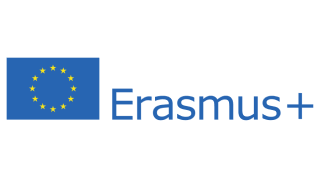
- A new ENTRance: Development of innovative instruments for promoting entrepreneurship of Roma
- INCOME: Innovating COworking Methods through Exchange
- Sport4Values
- DIGICULT: Digital presentation and preservation of intangible cultural heritage
- COHERENT: A Circle Of youth for tHe EuRope wE want
- BETA - Bridges of Intergenerational Approach
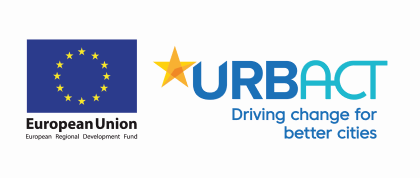
- CIA 7: Cities In Article 7
- Wood FootPrint
- FOOD CORRIDORS: Empowering Territorial Food Corridors within the European Union
- Playful Paradigm: The Playful Paradigm Transfer Network
- In4Green: Greener Industrial Cities
- S.M.ALL: Sharing urban solutions towards Sustainable Mobility for ALL

- CS-AWARE: CYBERSECURITY
- ACTIVAGE Project: Activating Innovative IoT Smart living environments for ageing well
- CLEVER Cities: Co-designing Locally tailored Ecological solutions for Value added, socially inclusivE Regeneration in Cities
- Easy Rights: Enabling immigrants to easily know and exercise their rights
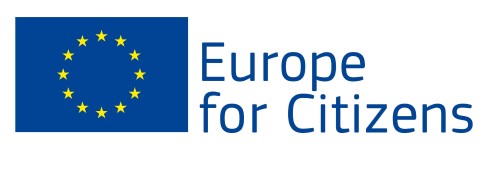
- HE-ART: Heart of Europe – network of towns promoting heart culture, solidarity and integration
- CIT-EU: The future perspective of the European Community
- PUNCH: Participation of Underrepresented Citizens for the valorization of the Cultural Heritage
- VALID: European Towns – Enhancing Common Values of Solidarity and Intercultural Dialogue
- SOLIDART: Network for the youth debate about the solidarity in crisis times, through creativity and art
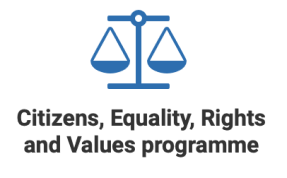
- LocalEUCharter: EU Charter on Fundamental Rights closer to citizens
- REACH: Roma women’s Empowerment and fighting discrimination in ACcess to Health
- FutureUp: Young players building the future of Europe
- JuniorXpress: A youth-led civic coaching driver for enhanced child-owned local governance
- PROGRESS_EU: Raising awareness of European rights for a progressive and transformative Europe
- Cities4Her: An inter-municipal youth-led forum for substantive gender equality in local decision-making
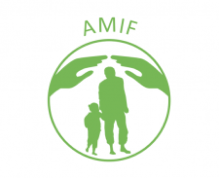
- InCommon: Cultural and Educational Interventions for the exercise of the Active Citizenship of Migrant Women
- MINGLE: Generating Social and Human Capital for Third Country Nationals
- IN2C: Integration of Third-Country Nationals in the Construction sector
- CONSULTING EUTH: Transnational Actions on Asylum, Migration and Integration
- IUC: International Urban Cooperation
- START: The Heritage of Taste
City Networks
One of the world’s leading trends is the increased percentage of urban population. This means that cities are potentially an important area of intervention in multiple sectors (environment, innovation, culture, social policies, employment, education, etc.)
International Networking is a priority and an exceptional tool for modern cities, as it is an opportunity for the representation of local authorities and the cooperation on the challenges that urban areas have to face. Also, they provide a framework for the promotion of innovative ideas and practices as well as the exchange of experiences in an international level.
Participating in City Networks (European or global), beyond Larissa’s extroversion benefits also include opportunities for the Municipality's (as well as the entities of the city) participation in partnerships and programs, European and global events and conferences, but also the transfer of experience and technical knowledge.
In this context, the municipality of Larissa participates in the following networks:
The CIVITAS Forum initiative, launched by the European Commission in 2000, focuses in cities that want to develop and implement measures for the improvement of urban transportation and to apply them on a large scale. Cities wishing to participate should confirm their political and technical commitment to integrated urban mobility and transport strategies. The Network Thematic Groups act as a platform of communication and exchange of experiences and knowledge among experts and representatives of local government on issues of sustainable mobility and, indicatively, refer to:
- Car-free travel policies (use of a bicycle, on foot movement, vehicle sharing, etc.)
- Clean fuels and vehicles (hybrid vehicles, alternative fuels, fuel infrastructure, electric vehicles, etc.)
- Mass transport (access, connection with other forms of travel, pricing, application of logistics systems, etc.)
- Demand management strategies (parking management, access restrictions, car-free zones, priority lanes, economic incentives and disincentives, etc.)
- Integrated planning (land uses, housing, new areas, SUMP)
- Mobility management (advertising and communication, mobility planning, mobility information centers, etc.)
- Public participation (information campaigns, participatory processes, consultations with many interested parties, etc.)
- Safety (infrastructure design, bicycle lanes, safe school routes, measures against vandalism, decrease of traffic, etc.)
- logistics systems on transport (clever transportation systems, communication, cellphone applications, license plates' recognition systems, etc.)
- Supply chain within the city (delivery centers, distribution plans, fleet management of transport vehicles, freight transport projects within urban areas)
Participation to the network is made on request, requiring signature of the network's declaration, while there is no subscription fees.
The European Covenant of Mayors on Climate and Energy brings together housands of local authorities who are voluntarily commited to implement the EU's climate and energy goals.
The Covenant of Mayors started in 2008 in Europe, aspiring to bring together local authorities tha are voluntarily to achieve and surpass the EU's climate and Energy goals.
The iniciative brings together more than 7.000 local and regional authorities in 57 countries and exploit the advantages of a global multilateral movement and depend on the technical and methodological support provided by specialized offices.
The Global Covenant of Mayors exploits the experience gained over the last 8 years in Europe nad beyond and is based on the main success factors of the iniciative: bottom-up management, multilevel cooperation model and concrete accion framework.
The Covenant of Mayors on Climate and Energy is open to all local authorities, with a democratic composition of elected representatives, regardless of their size and the implementation state of their energy and climate policies.
Small and medium-sixed local authorities may also, under circumstances, decide to participate as a group of signatories.
The commitments of the signatories to the Covenant are linked to the EU climate and energy policy framework: the set of measures for the climate and energy by 2020, for the signatories integrated to the Covenant between 2008 and 2015, as well as the Framework for climate and energy by 2030, and the EU's C;imate Change Adaptation Strategy for signatories that joined after 2015.
The Covenant signatories are commited to adopting an integrated approach to migration and adaptation to climate change. They will need to develop a Sustainable Energy and Climate Action Plan within the first two years of their accession to reduce CO2 emissions by at least 40% by 2030 and increase climate resilience.
ICLEI-Local Governments for Sustainability is an international Network of more than 1500 cities around the world, that are committed to the principles of sustainability, addressing social, demographic and environmental issues, as well as other challenges related to urban areas. The aim is the cooperation of local and regional authorities for the making of changes through collective learning, exchanges and skills development.
ICLEI has also a European Secretariat, based in Freiburg (Germany) with an active presence in the European Sustainable Cities Campaign, while it also supports the Covenant of Mayors.
Participating in the network includes an application and a subscription fee, which depends on the size of the city and the per capita GDP of the country.
The main areas of activation of the network include:
Biodiversity
• Adaptation to climate change
• Tackling climate change
• Sustainability management
• Urban governance
• Sustainable Economy and Procurement
• Energy
• Waters
• Mobility
• Sustainable event planning
The network of Major cities of Europe constitutes over the last 30 years, a stable frame of reference of the most important representatives of local government of multiple European cities on issues of new technologies and innovative services.
It’s a non-profit, independent community of innovative municipalities that aims to share experiences and good practices, to promote innovative solutions and integrated technologies and business models through an open and cooperative background.
The community of Major Cities is an opportunity for networking and cooperation with experienced suppliers of ICT services, with important national governmental organizations both in Europe and in America. Some of the local authorities that are members of the Network are: Hamburg, Tel Aviv, Dublin, Oslo, Barcelona, Boston, Birmingham, Berlin, Trieste, Uppsala, Rome, Zurich, Geneva, Trikala, Genoa, Eindhoven, Leipzig, Livorno, Prato, Ljubljana
There are also several organizations that are members of Major Cities:
- PTI- Public Technology Institute, Washington DC
- CTG- Center for Technology in Government- University of Albany-NY
- VITAKO The Association of Local Government ICT providers- Germany
- SOCITM- The society of UK Local Government CIOS
- CITY PROTOCOL SOCIETY- Building Together Better Cities
- PIN- PRATO- Educational and Scientific services for the University of Florence
- IBM
It’s a network of cooperation between not only municipalities but also organizations that aim to promote rivers or coastal fronts in their cities as culture areas. For the participation to the network only signing of a memorandum of understanding is required.
The main objectives of the network are:
- To strengthen the importance of riverside/coastal areas in the everyday life of cities.
- To explore the riverside/coastal areas as an urban area for sustainable development and source of artistic inspiration
- To increase access and citizens' engagement with public space
- To overcome obstacles to a successful cross-sectoral cooperation and social integration
- To encourage cooperation and artistic joint ventures
- To communicate concepts and practices to a greater audience
http://uil.unesco.org/lifelong-learning/learning-cities
Larissa Learning City
https://learninglarissa2016.wordpress.com/
«Learning City» is an innovative project that aims to intervene dynamically at the level of lifelong learning. In January 2016 the city of Larissa was the first Greek city that became member of the Global Network of Learning Cities – UNESCO which aims to:
- The promotion of learning without exclusions from basic to higher education
- The revitalization of learning to families and communities
- The promotion of learning in the workplace
- The expansion of the usage of modern learning technologies
- The improvement of the quality and excellence in learning
- to build a life-long-learning culture.
The Cities Network for Integration (CNI) inspires its members to exchange and plan coordinated activities and interventions at local and national level, aimed at promoting social integration of migrants and refugees and strengthening social cohesion.
The CNI launched its operations in January 2018, based on a memorandum of understanding between the two largest Municipalities of Greece, Athens and Thessaloniki, paving the way for a common framework for cooperation.
At the initiative of Athens, since April 2020, the CNI is supported by IOM Greece and UNHCR Greece on the basis of a trilateral cooperation with the Municipality of Athens.
Based on the priorities set by the participating Municipalities, the two international organizations provide the necessary technical means to develop mechanisms and procedures that promote initiatives with long-term benefits for both host societies and refugee/ migrant populations.
Today, the Network consists of 18 Municipalities, with a total population of 3,103,893 inhabitants.
Member Municipalities: Athens, Thessaloniki, Chania, Delta, Heraklion, Thessaloniki, Ioannina, Kalamaria, Karditsa, Katerini, Larissa, Livadeia, Neapoli – Sykies, Nea Filadelfeia / Nea Chalkidona, Piraeus, Tilos, Trikala, Tripoli, Agios Dimitrios.
